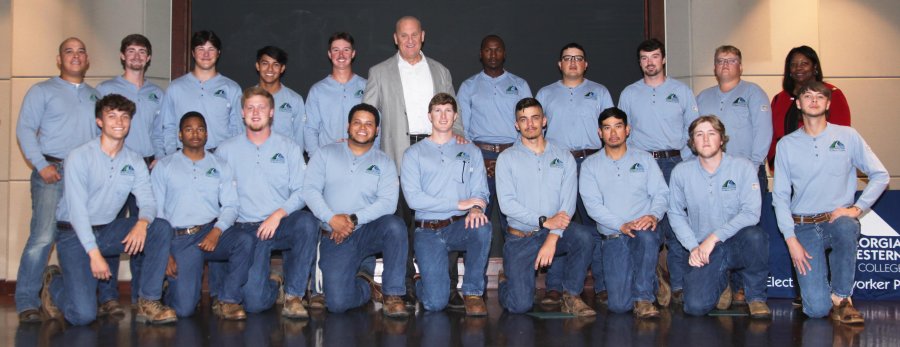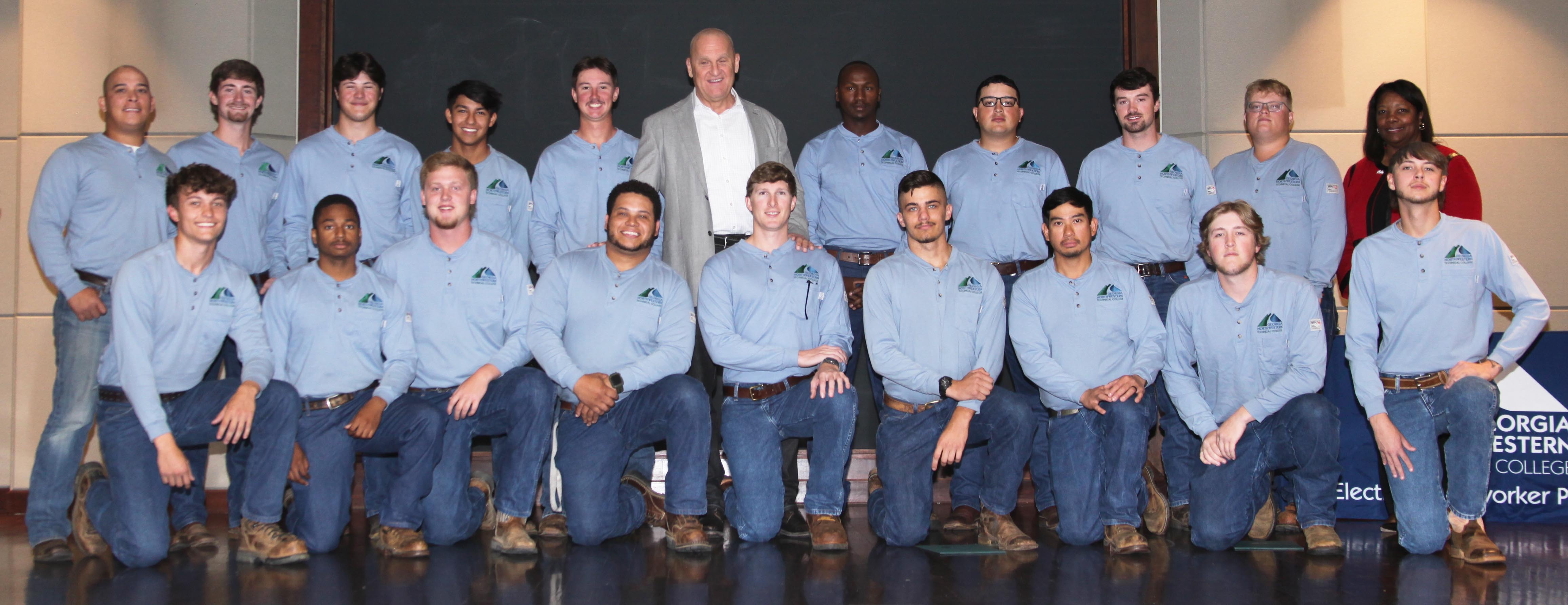
Leaders from Georgia Power joined with officials from Georgia Northwestern Technical College (GNTC) and state and local representatives Monday, Oct. 31, at GNTC’s Polk County Campus in Rockmart to congratulate the first graduates of GNTC’s new Electrical Lineworker Program.
Through the collaboration between Georgia Power and GNTC, 18 students experienced a vigorous training program that included donated equipment such as trucks, poles and climbing equipment, as well as hands-on expertise from Georgia Power instructors. Upon completing the program, students received four certificates of completion for Electrical Lineworker, Commercial Truck Driving, OSHA 10-Hour General Industry and an overall certificate verifying 395 training hours completed.
“Georgia Power has proven time and time again to be one of GNTC’s most committed, unprecedented partners as it relates to establishing strategic training programs like the Electrical Lineworker Program,” said Dr. Heidi Popham, GNTC president.

“Implementing training programs of this nature cannot be done by the technical college alone; it requires significant investment from private stakeholders such as Georgia Power,” she said. “From providing instructor expertise, equipment, tools and an incredible pole field, Georgia Power has gone over and beyond in helping GNTC to establish and sustain the Electrical Lineworker Program for many years to come.”
The program is offered through GNTC’s Office of Economic Development.
“We are seeing tremendous interest in our Electrical Lineworker Program,” said Stephanie Scearce, GNTC’s vice president of Economic Development. “Since launching in March, we have already received 300 applicants.”
“While we learned a lot about how to improve the program moving forward, I am incredibly proud of the outcome of our inaugural cohort, thanks to our dedicated instructors and staff,” Scearce said. “I don’t think we could have asked for a better group of students. They showed up every day of training and put everything on the line to better themselves. Let’s just say the bar is set high for future cohorts.”

















